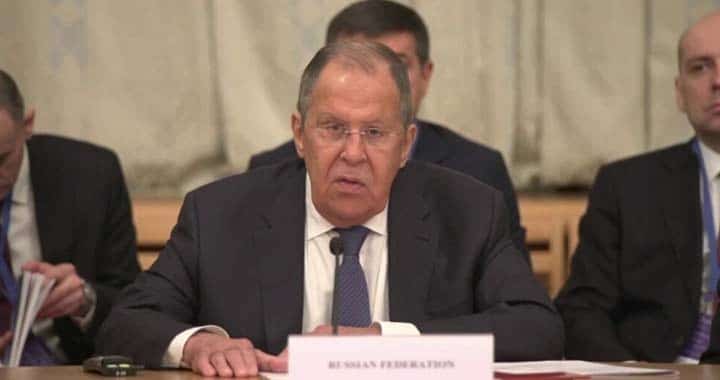At the 7th Moscow Format Consultations on Afghanistan held on Tuesday, Russian Foreign Minister Sergey Lavrov voiced strong concerns over the deployment of foreign military infrastructure in Afghanistan or neighbouring states, warning that any such move would be “completely unacceptable” and could reignite conflict and instability in the region.
Lavrov’s warning came amid heightened regional anxiety over Afghanistan’s fragile security environment and deepening humanitarian crisis under Taliban rule. He cautioned that the presence of any non-regional military actors would “lead to destabilization and new conflicts,” adding that history had already shown the consequences of foreign intervention in Afghanistan.
The Russian foreign minister’s remarks followed recent statements by former US President Donald Trump, who suggested that Washington should “take back” the Bagram Airbase in Afghanistan due to its proximity to China’s nuclear zones a proposal strongly rejected by the Taliban, who described Bagram as an inseparable part of Afghan territory.
Lavrov acknowledged that the Taliban administration referred to by Moscow as the “Islamic Emirate” had strengthened its hold on power over the past four years but stressed that the humanitarian situation remained dire and governance challenges persisted. He urged international donors to continue aid without imposing political conditions, warning that more than 22 million Afghans require urgent assistance while over 21 million lack access to clean drinking water and healthcare.
Despite Moscow’s formal recognition of the Taliban government in July, international organisations and regional observers continue to express deep concern over Afghanistan’s deteriorating socio-economic conditions, restrictions on civil liberties, and the absence of inclusive governance. Analysts say these issues have compounded the humanitarian emergency and hindered engagement with global donors.
Lavrov also noted that Russia would continue to provide humanitarian assistance to Afghanistan, citing UN data showing a 90 percent drop in opium cultivation since 2022. However, security officials from several participating countries emphasised that the threat of terrorism, arms smuggling, and cross-border militancy remained serious challenges requiring collective vigilance.
The Russian foreign minister also called on Western nations to take responsibility for Afghanistan’s postwar reconstruction and compensate for the economic damage inflicted during two decades of military involvement.
For the first time, Taliban Foreign Minister Amir Khan Muttaqi attended the Moscow Format Consultations as an official participant, joining representatives from Russia, China, Iran, Pakistan, India, Kazakhstan, Kyrgyzstan, Tajikistan, Turkmenistan, and Uzbekistan. Muttaqi is expected to hold bilateral meetings with several counterparts, including Lavrov, on the sidelines of the summit.
Regional delegations reaffirmed the need for Afghanistan’s integration into broader political and economic processes but emphasised that sustainable engagement would require credible counter-terrorism efforts, transparency, and respect for international norms.
The Moscow Format, established in 2017, serves as a key regional platform for dialogue on Afghanistan’s security, political reconciliation, and humanitarian coordination. Tuesday’s meeting reflected growing unease among Afghanistan’s neighbours about the country’s internal governance, its uncertain political direction, and the broader risks posed to regional peace and stability.





